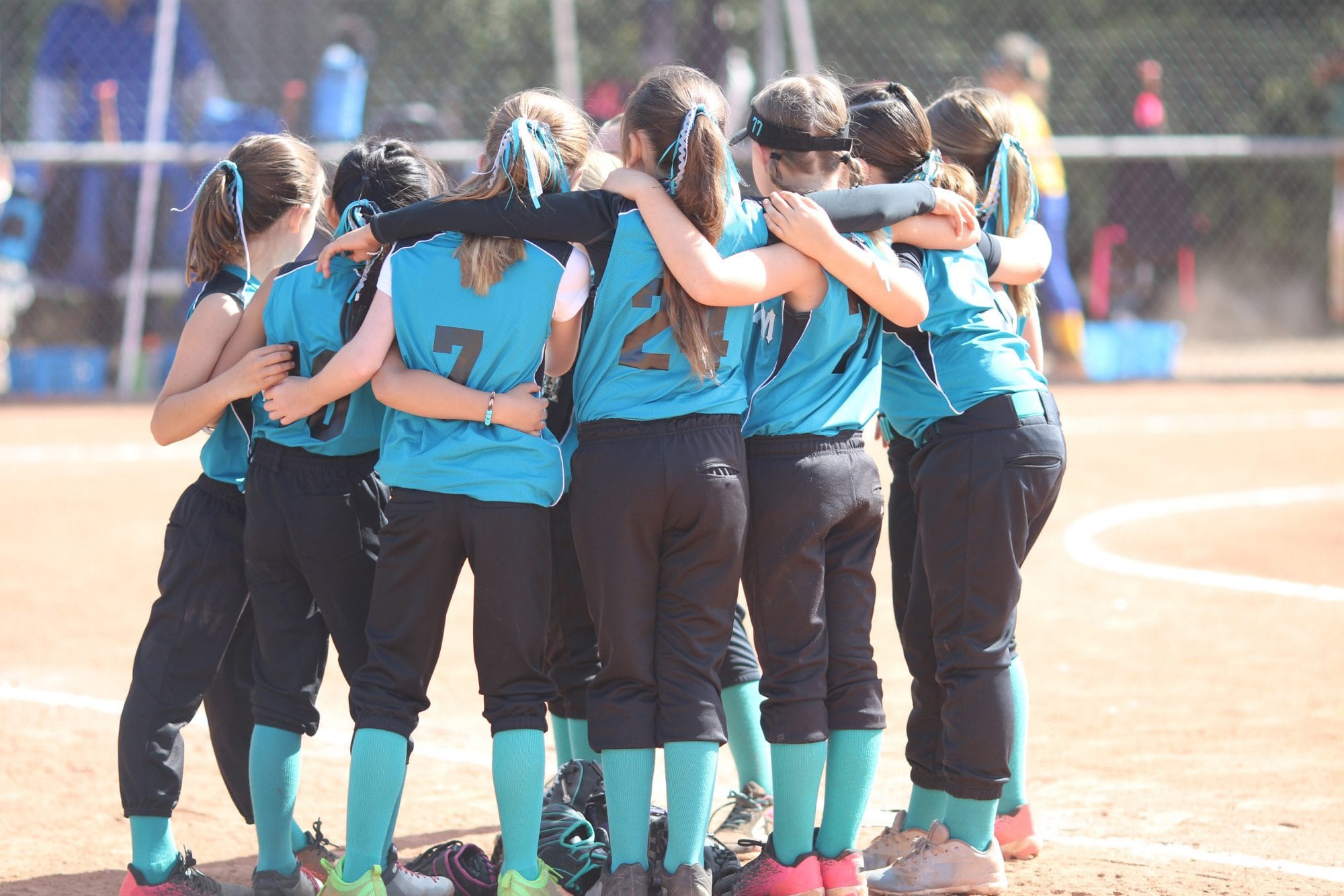
I am a baseball guy. I’m still involved in recreation leagues. As a kid, I played Little League Baseball. My wife played Little League Softball. Our daughter is a good ball player and could have easily played baseball. I pushed her to do so, but she decided on softball. My wife was pleased. I was disappointed.
That disappointment quickly grew at my daughter’s first softball game of the season, and it had nothing to do with the play on the field or the coaching. I couldn’t handle the chanting. Okay, I know every Little League team has some degree of chanting, baseball for sure, but what I heard on the softball field made me think the girls should have pom-poms, not gloves. And, the chants didn’t only come from the dugout. In the field, the girls would yell things like “two outs, one to go, say two outs one to go” then they would slap their foot with their hand. They seemed more interested in cheerleading than concentrating on the game. I was used to baseball chatter; infielders simply holding up their forefinger and pinky, and yelling “two down”, followed by giving the pitcher some quick encouragement, then right back to their positions. No pomp and circumstance.
I became a grump in the stands. I’d scoff at the chants and make condescending comments. One time, I yelled, “Just play!” halfway through a chant, getting plenty of dirty looks. After that game, on the ride back home, my wife, told me that chanting is part of the softball culture, and that I just didn’t understand. I shot back, “I understand we lost the first three games, and the girls seem more focused on cheering than winning.”
I told my daughter, who started at third, that I didn’t want her to chant in the field. She asked why, and I told her that she and the other girls needed to focus and take games more seriously. “But, it’s fun,” she said. I still cringe at what came out of my mouth next . . . “Winning is fun.”
The next game, the team did even more chants! But, my daughter did as I told her. She didn’t chant from third base. She also didn’t smile once. She yelled some encouraging things from the dugout, which I was fine with, but she didn’t chant. We lost again. She, uncharacteristically, had three errors and barely made contact with the ball at the plate. My daughter went out for ice cream with a fellow parent and the rest of the team. On the ride home, my wife told me our daughter was upset, and that I was being chauvinistic. We didn’t speak the rest of the evening.
The following game, something interesting happened. Despite still not winning a game, the chanting was even louder, and the smiles and laughter were everywhere. Everywhere, but my daughter, who seemed to have lost her on-field confidence with her smile. The rest of the team started to hit. They fielded well. They pitched better. They hugged each other in the dugout. They won! After the game, they all went to swim at the manager’s house. I stayed for a while and saw firsthand how the friendships were starting to grow. The team become stronger despite not one time overhearing any talk about their first win. What I did overhear was my daughter’s teammates asking her why she wasn’t doing the chants.
On the way home, I apologized, and told her that she should be a part of the team, and if that meant chanting, chant. The team ended up winning four in a row, and I’m convinced a big part of it was because of the bond they built on and off the field and the fun they were having. I realize now, that despite the many similarities with how baseball and softball are played, softball does have a different culture – a culture I accept and respect. Little League Baseball builds friendships just like Little League Softball, but there’s an even more special energy to softball. At least, that’s been my experience. I still prefer chatter over chanting, but, I have to admit, I’m starting to say the cheers right with my daughter and the rest of her team.